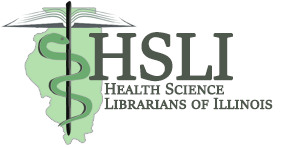In light of the reintroduction of Illinois Senate Bill 2784 (SB2784), the “Internet Screening in Public Libraries Act”, and the possible effects that this legislation would have on access to health information, here is a link to a study by the Kaiser Foundation. (The study is from 2002, but it is still well-regarded, and although filtering technology has become somewhat more sophisticated, many of the same issues still apply.) The study covers the impact that filters, set at various levels of restrictiveness, have on searching for health and medical information online.
As the study notes, filters can prove to be especially problematic when searching for information on sexual health (because of the close association with pornography). This is true even when the settings for blocking materials are set at a relatively low level. In the case of Internet users who are seeking information on safe sex, and who are relying on public Internet access as their primary means of viewing information on the topic, not being able to access certain information because of filters can lead to serious health problems in the future. The bottom line is that, even though filters do block some sites that are genuinely pornographic, filters are far more likely to keep out “good” material than they are to block “bad” material successfully, particularly at more-restrictive filtering levels.
“See No Evil: How Internet Filters Affect the Search for Online Health Information”
